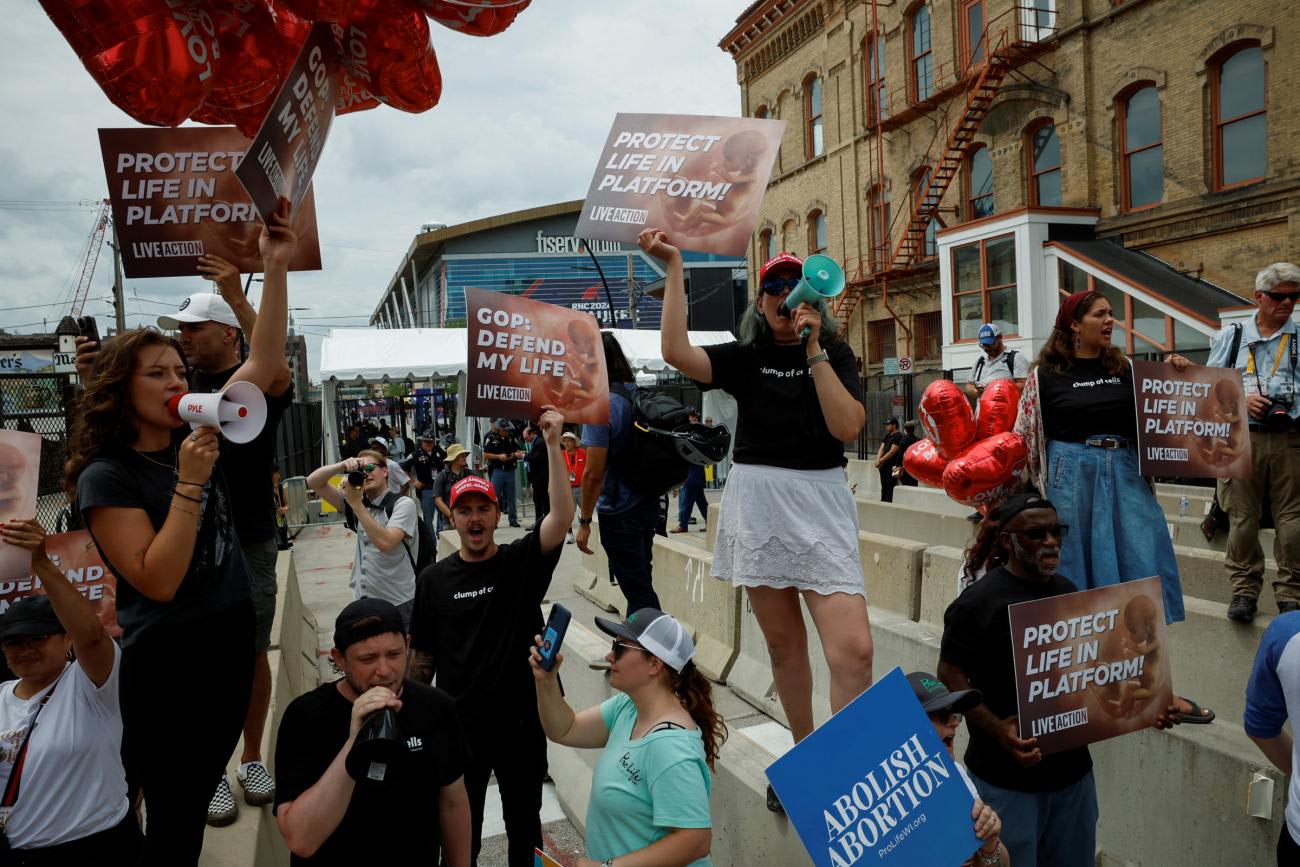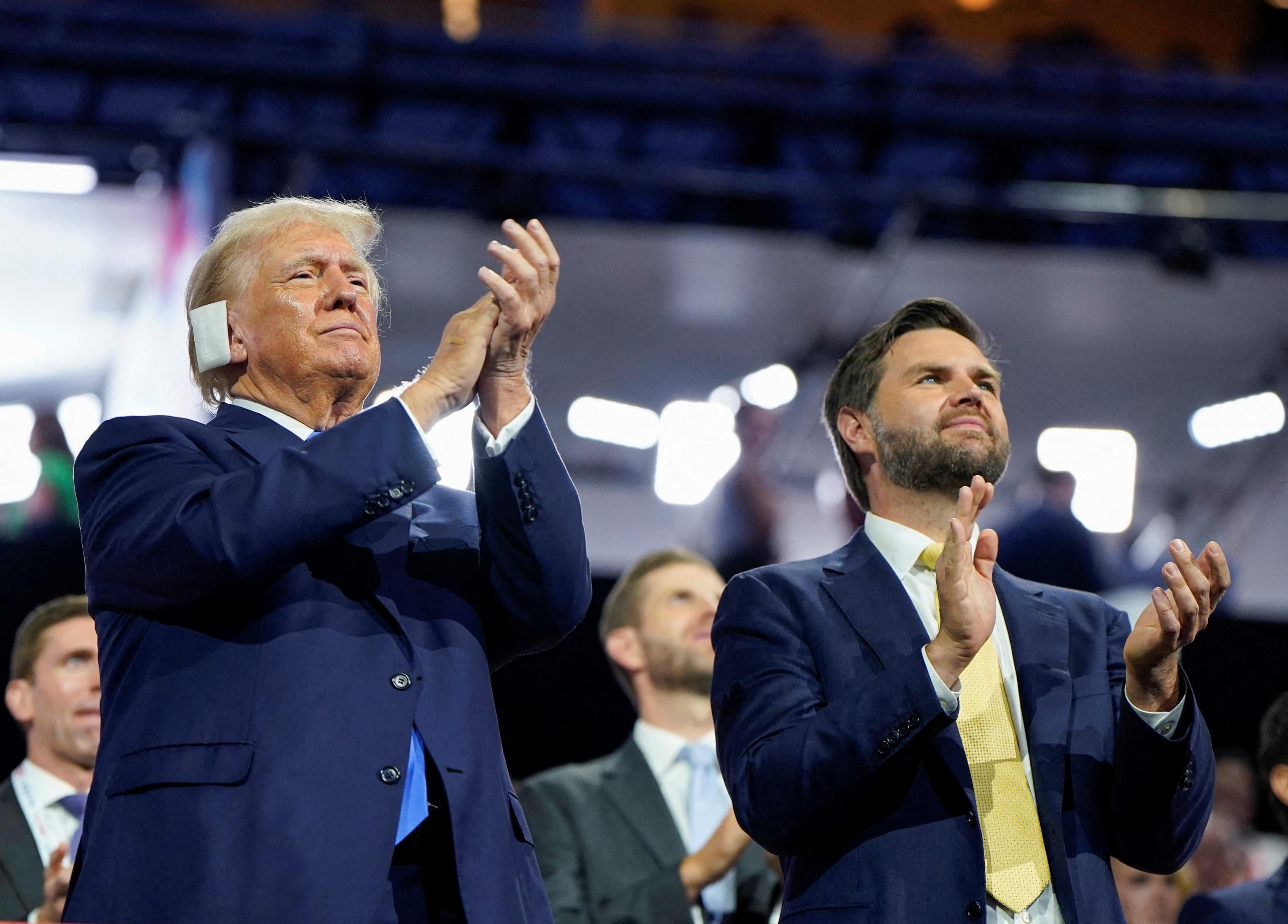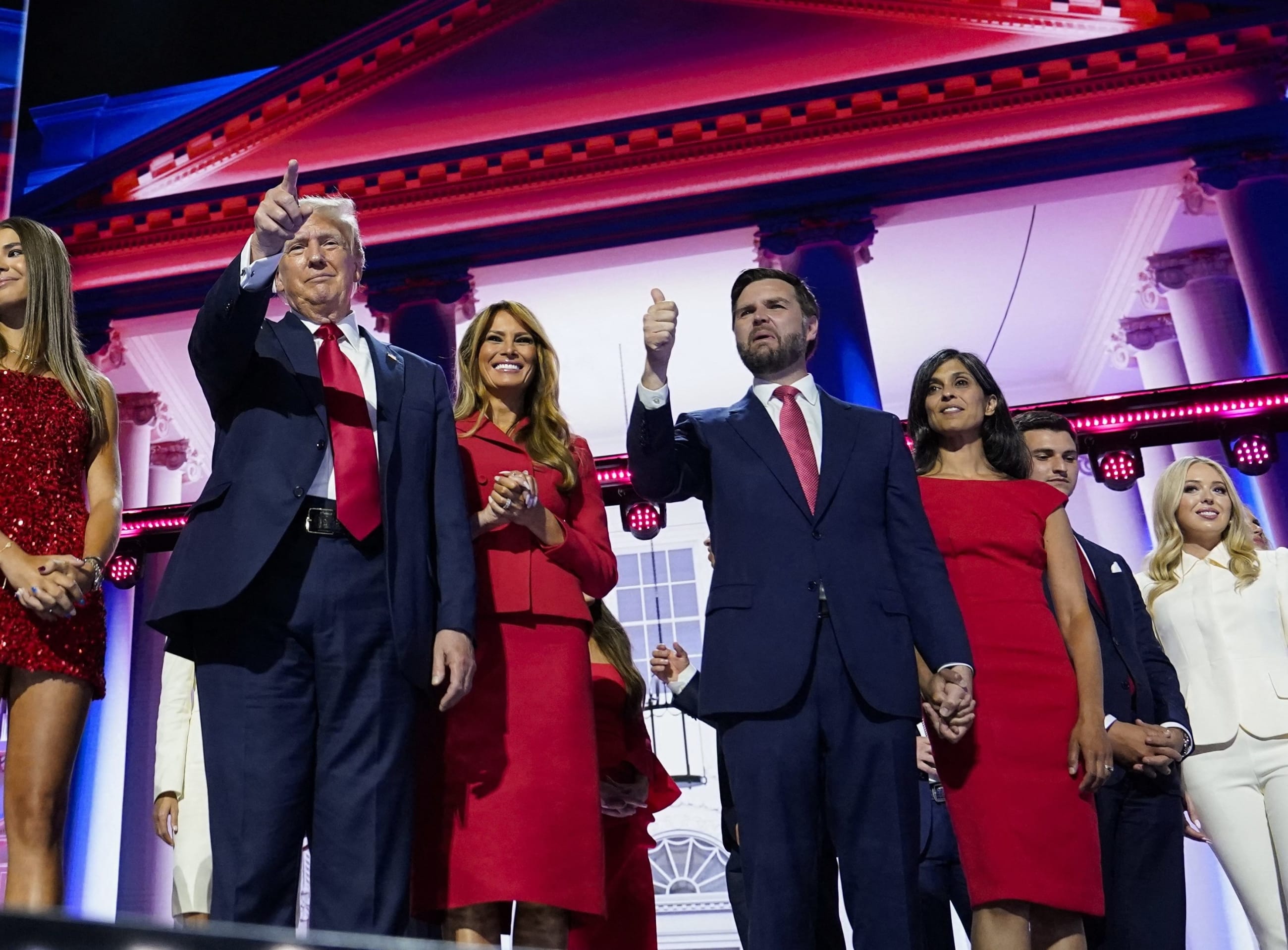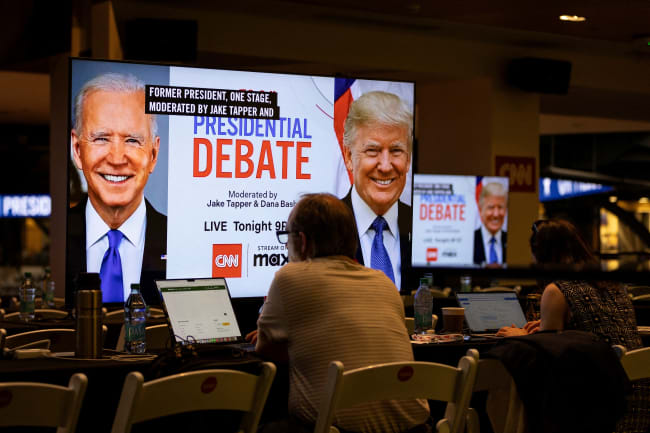This year's Republican National Convention (RNC) was built around a theme of unity. Specifics, however, were less clear. In an attempt to react to shifting public opinion on abortion rights and access to health care, Republicans have adopted a strategy on health matters that shies away from overtly supporting unpopular positions by keeping policy intentions vague.
As members of the Harvard Public Opinion Project, we witnessed this tactic firsthand in Milwaukee last week. Although "everyday American" speakers, Republican lawmakers, and President Donald Trump's inner circle all rallied around his campaign, a pronounced softening of attitudes toward health care was clear.
In 2016, Trump promised to "repeal and replace" the Affordable Care Act. In 2020, his administration asked the Supreme Court to strike down the law altogether. Yet the topic was barely broached by RNC speakers. Similarly, abortion—a rallying point for the Republican Party for years—was noticeably absent from the convention's speeches.
This shift comes as Americans—young people in particular—have grown more supportive of positions traditionally held by Democrats on health-care issues, including government-funded health care, reproductive rights, and reining in Big Pharma. This spring's Harvard Youth Poll revealed that two-thirds of young Americans, including many young Republicans, believe that basic health insurance is a right the government should provide, a significant increase from less than half in 2016. That trend holds for Americans of all ages as support for the Affordable Care Act reaches an all-time high.
Additionally, although the country still remains divided on the issue of abortion along partisan lines, it has been a major mobilizing factor for Democratic voters in the aftermath of Dobbs v. Jackson Women's Health Organization, and the majority of Americans oppose a federal ban.
Today's Republicans, conscious of shifting dynamics, have decided to frame health care as an extension of their positions on immigration and the affordability of everyday life.
Addressing the Cost of Health Care
At the RNC, the message was clear: health care costs too much. But who's to blame for those price tags? Many convention speakers, including Trump himself, pointed their fingers at immigrants, President Joe Biden, and the crushing grip of Democratic regulations.
At the RNC, the message was clear: health care costs too much
Republican leaders speaking at the convention claimed that illegal immigration was responsible for rising health-care costs, arguing that millions of immigrants enrolled in Medicare were raising prices for everyone else. In reality, the opposite is true: Immigrants contribute much more through payroll taxes than they take from Medicare. Speakers also linked the opioid epidemic to immigration, blaming illegal immigrants for bringing the drugs across the U.S. border, a claim that also lacks validity.
Convention rhetoric indicated that a significant part of any GOP health-care agenda would be to limit immigration. It is unclear, though, how this is expected to lower health-care costs in any meaningful way.
Speakers also echoed the GOP platform's goal of promoting "choice and competition" in health care and blamed the Biden administration's regulations for high prices while hinting at the privatization policies pursued by past Republican administrations.
It is difficult to predict how a second Trump administration would tackle health care. On one hand, Trump has been quick to say that he opposes any cuts to Medicare and will fight for lower drug prices. On the other, Republicans have been conspicuously silent about Medicaid and the Affordable Care Act.
The impression was of a party at a crossroads. The issue of health care perfectly encapsulates how the GOP is still deciding between neoliberal conservatism and its populist base. Until the Republican Party decides on one direction, in actions and words alike, voters will continue to see more of the disjointed party that was on display last week.
Abortion Rights and Women's Health Care
Throughout this collision of old and new, discussion of abortion was practically taboo.
The GOP has strived for the overturning of Roe v. Wade for years, yet neither Trump nor any other Republican leaders took time to revel in their victory at the convention. As the success of abortion-related ballot initiatives since Dobbs—even in conservative states—has shown, reproductive rights are popular and a powerful mobilizing factor. Whereas the Democratic campaign hopes voters will turn out to protect those rights, Trump avoided mentioning an abortion ban during the convention speeches and in the party platform.

This shift has drawn ire from parts of the pro-life base. President of Susan B. Anthony Pro-Life America Marjorie Dannenfelser has called for a 15-week federal ban on abortion, and the organization pledged in April 2023 to oppose any presidential candidate who refused to support a ban. A year later, however, the group, like many others, still threw its support behind Trump while expressing disappointment.
The official Republican Party Platform includes only a brief paragraph on abortion (which is not even listed in the top 20 agenda), stating that Republicans will defend "a vote of the people, from within the states, on the issue of life" but "oppose late term abortion." The platform also makes it clear that the party supports "prenatal care, access to birth control, and IVF [in vitro fertilization]."
Several convention-goers reiterated that approach of states' rights. Mayra Flores, a former U.S. representative from Texas who is running again this fall, explained that although she is personally pro-life, "every state is different," and each should have the ability to decide its own abortion policies. One college student we spoke to said she was pro-life but argued that abortion is a health issue, not a political one.
The tensions between embracing or condemning abortion as health care boiled under the surface of several speeches as the party tried to avoid any indication of support for a national ban without alienating the largely pro-life base. The first night, "everyday American" Vanessa Faura—the manager of Coalitions and Partnerships for Restoration of America—proclaimed in her speech that "every human being born and unborn is made in the image of God," making her view clear without ever addressing abortion rights head-on. An hour or so later, model and TV personality Amber Rose, a former abortion rights advocate, spoke about uniting the party with a more diverse coalition. Because the topic was left unspoken inside the convention center, protestors and trucks outside carried signs calling abortion murder.
By shunting decisions on abortion access to the states, the Trump campaign is trying to appeal to both pro-choice Republicans and religious conservatives. But whether Trump's quiet rhetoric signals a new direction for the Republican Party remains to be seen. The language in the party platform still reinforces the idea that unborn fetuses are people that "can be denied Life or Liberty without Due Process," leaving the possibility open for fetal personhood arguments that could easily cascade into national bans and restrictions on reproductive health care once Trump is in office.
Gun Control
Although Trump has tried to soften his stance on popular Democratic issues such as government-funded health care and abortion, his party made no movement toward embracing gun control, even after his attempted assassination just days before the convention. The majority of Americans have consistently supported stricter gun laws since 2015, according to Gallup polls, but the issue is split along party lines.
The majority of Americans have consistently supported stricter gun laws since 2015 . . . but the issue is split along party lines
Speakers at the convention didn't gloss over gun violence entirely. They honored Corey Comperatore, the man who was shot and killed by Trump's would-be assassin at the Pennsylvania rally, with a moment of silence. Trump began his keynote address by recounting the events of that fateful rally, and Representative Steve Scalise (R-LA) brought up his experience of being shot in 2017 at a congressional baseball practice.
All talk of gun violence was framed as rare cases of political extremism. Not a national crisis. Not a health threat. Not an issue worth addressing or even worth acknowledging in the party platform.
The traditional fervor around owning guns was also muted. Inflation, immigration, and foreign policy—rather than gun rights—dominated the conversation, with two notable exceptions. On Wednesday, vice presidential nominee J. D. Vance devoted part of his primetime speech to a story about his grandmother's "19 loaded handguns" hidden throughout her house, inviting roaring applause from the audience. The U.S. Concealed Carry Association also proudly auctioned off an AR-15 rifle, the same style of gun used in last week's assassination attempt on Trump, outside the arena.
Gun culture hasn't faded within the Republican Party. Last month, several notable Republican leaders were outraged by the decision of Surgeon General Vivek Murthy to declare gun violence a public health emergency. One young RNC attendee from Texas voiced an all-too-familiar refrain: "It's not the gun that's the problem, it's the person with the gun."
From guns to health care and everything in between, ambiguity reigned supreme. The Republican National Convention showcased a fragile unity built by keeping potential wedge issues obscured behind populist rhetoric and uncertain policy, all the while ignoring the reality of health issues that for many Americans are life-and-death. Whether the Republican Party will continue this balancing act or revert back to its attacks on the health-care system after the election remains to be seen.













